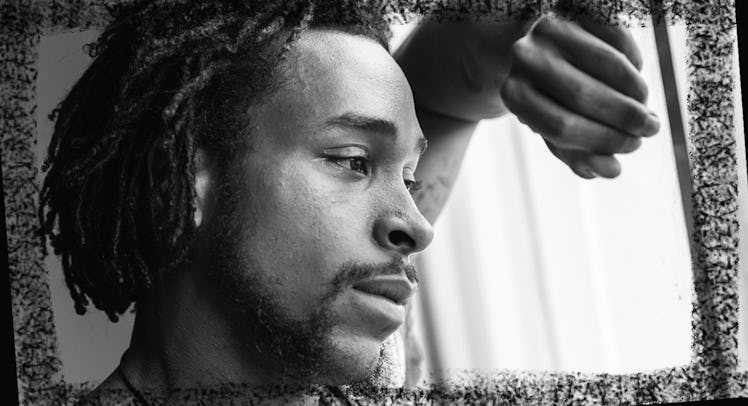I’m a Dad Who Suffers From Depression. Admitting That Saved Me.
Was it hard for me to admit it? Very. But coming clean made me a better father and man.

One day, last summer I was home alone with my youngest daughter. She was five-years-old. I was in rough shape. A few weeks prior, I’d ruptured my Achilles tendon playing basketball. Even getting out of bed required Herculean effort for weeks. Raising tiny humans is hard, but it becomes exponentially so when you’re not on top of your game. That morning, I hobbled down and made scrambled eggs for my daughter. When I placed them in front of her, she snapped, “I don’t want eggs!”
I looked at her and I slumped in my chair and started crying. It wasn’t a lone tear trickling down my face, either — I’m talking full on waterworks and hysterics. I didn’t have it in me to handle a relatively minor and common setback that every parent on the planet has dealt with. I was in severe pain. But the pain from my injury was nothing in comparison to the pain I dealt with emotionally.
I am a dad who suffers from depression. And I am far from alone.
Almost ten percent of American men have expressed that they have feelings of depression and/or anxiety. However, only 19 percent of all men feel comfortable talking to others about their problems. That means there are millions of men walking the streets in our country right now suffering in silence due to fear of ridicule or appearing to be “soft.” That’s why it should be no surprise to anyone that the suicide rate is four times higher for men than it is for women.
I’m happy to report that I’m one of the ones who swallowed my pride and sought professional help for depression, so I know my story will have a happy ending. But I can guarantee that someone reading this either knows a man battling depression or is that man himself. Will you do what I did and reach out for assistance? Or will you subscribe to antiquated gender norms dictating that mental illness for men is the ultimate sign of weakness?
The beauty of fatherhood is realizing that being a good dad means never being afraid of doing whatever it takes to make our kids happy. That ranges from styling hair, starting impromptu dance parties at the park, hosting tea parties with our daughters, and making the best scrambled eggs in the neighborhood (regardless of what one particular kid may believe). In other words, we’ve already shattered stereotypes about what it means to be a man — so why do so many of us revert back to the tired “man up” philosophy when it comes to taking care of our own mental health?
The simple answer is fear. We’re afraid of what our families, friends, and colleagues will think of us. It’s easy to worry that people will think we’re crazy and avoid us like the plague. Some people will inevitably think that. But who cares? There will always be those who won’t like us for some reason, but the people who really matter (our spouses, our kids, our best homies, etc.) will always support and love us no matter what we’re going through.
When I finally went public with my depression, I noticed that way more people ran towards me than away from me. Nobody can relate to the perfect parent (as if he exists), but we can all get down with the person who admits that he’s flawed.
Self care — and self-awareness — is essential to being a good dad. And it’s essential to show our kids that it’s okay to be vulnerable. What message are we sending them if we’re in pain and we just pretend that everything’s fine when it’s plainly obvious that it’s not? For the longest time, men have been conditioned to believe that the three acceptable emotions to publicly display are happiness, lust, and anger — and in order for the cycle to break, it’s important to teach our sons and daughters that true strength comes from vulnerability. Speaking from my personal experience, few things moved me more in life than witnessing men I respect cry in front of me.
As a Black man, I can count on one hand the amount of men of color I know who admitted they suffer from mental illness. By comparison, I know way more white dudes who are getting treatment for depression. I’m sure, however, there are countless men of all races who would rather go to the grave prior to sharing their emotional distress with others.
May is Mental Health Awareness Month, and I cannot stress this enough: If you’re finding that life provides you with more pain than joy, please take the requisite steps to get help — and I mean professional help. Your kids and loved ones need you to be the best dad, spouse, friend that you can be. But that can only happen if you take the first step.
This article was originally published on